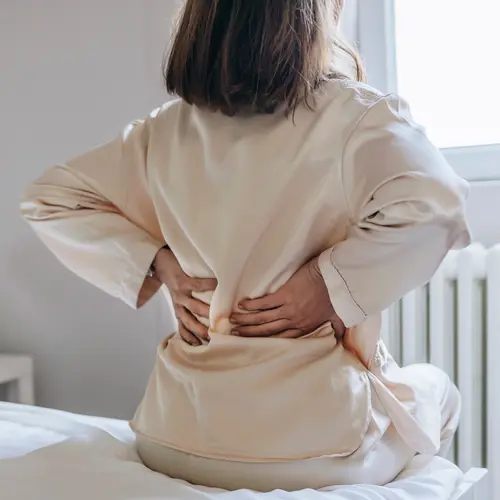When you're nursing a broken bone, you may be tempted to rest safely on a sofa, day and night, until it's healed. Don't! Your recovery will go better if you follow your doctor’s orders and stay as active as possible.
You may need to do things differently for a while. But the rewards for staying active are great. You'll build strength and protect your bones from weakening, says Robert Dorman, a physical therapist at Massachusetts General in Boston.
Ease back into your home routine with these smart ways to get around, cook, dress, and stay independent as you heal.
Make Your Home Safer
Are you using a cane, walker, or a sling now? Are you just moving a little slower? Ask your family or friends to help make your home safer, says Logan Sharma, an occupational therapist at Mass General in Boston.
Here's what your family and friends can do to help you avoid a trip or fall:
- Rearrange the furniture. Clear a wide path through each room. If needed, move your bed to the first floor until you can climb the stairs again.
- Clear out clutter. Put away stacks of clothes, books, or magazines -- anything that can trip you up.
- Fix loose rugs. Secure large area rugs with double-stick tape around all edges. Remove small throw rugs.
- Add lighting. Make sure all entries and hallways are brightly lit. Put nightlights everywhere you walk after dark.
- Install handrails on both sides of stairs. Also install grab bars in the shower. Be sure to use them!
- Keep a phone nearby. If you live alone, always keep a mobile or cordless phone at arms' reach, so you can call for help.
Make Daily Tasks Easier
You may need to move differently until your broken bone heals completely. For a fracture in your spine, keep your back straight and upright. Don't swivel sideways or rotate your torso.
A physical or occupational therapist can show you how to do daily tasks safely, depending which bone is fractured.
These tips may help:
Make cooking a cinch. Ask family and friends to shop for you. Or order groceries online for pick-up or delivery. Try these food choices:
- Stock up on healthy, frozen meals you can pop in the microwave.
- Buy pre-washed, pre-cut veggies and fruit to save time and energy.
When it comes time to prepare the meal, make things easier for yourself:
- Sit on a high stool with a back while fixing meals.
- Move pots and dishes onto the countertop within easy reach.
- Slide pots and dishes along the counter instead of lifting.
Learn bathing basics. Try these bath and shower tips to keep you safe:
- Use a long-handled sponge to scrub your feet, lower legs, and back.
- Put a non-slip rubber mat in the bathtub or shower.
- Floor mats need rubber backing.
If you're recovering from a broken hip or spine:
- Add a raised toilet seat to get on and off easily.
- Use a bath chair and hand-held sprayer so you can sit to bathe.
Demystify dressing. Follow these tips for getting into your shoes:
- Put on your shoes with a long-handled shoehorn, instead of bending over.
- Switch to elastic shoelaces to slip into lace-up shoes easily.
- Low-heeled, sturdy shoes help prevent falls.
And try this for getting dressed:
- Pull on clothes with a dressing stick that has hooks or pinchers.
- Choose loose clothes to fit over a cast or brace.
Get around in style. Don't be afraid to ask family and friends for rides. Or search online for "senior transportation" from local agencies. Dorman says you can probably safely drive once you are off pain meds and you can:
- Sit comfortably.
- Rotate your body to see over your shoulder.
- Step on the brakes quickly to avoid things in the road.
Exercise your body, mind, and spirit. Be sure to keep up with exercise and outdoor activity:
- Do your physical therapy exercises every day. Choose a time when pain levels are lowest.
- Spend time outside. Take walks if you can or place a sturdy chair where you can sit and enjoy the change of scenery.
And keep yourself mentally active too:
- Read, do crossword puzzles, or play online games.
- Call a friend or family member at least once a day to stay connected.
- Go to social events such as family get-togethers or lunches with friends.

